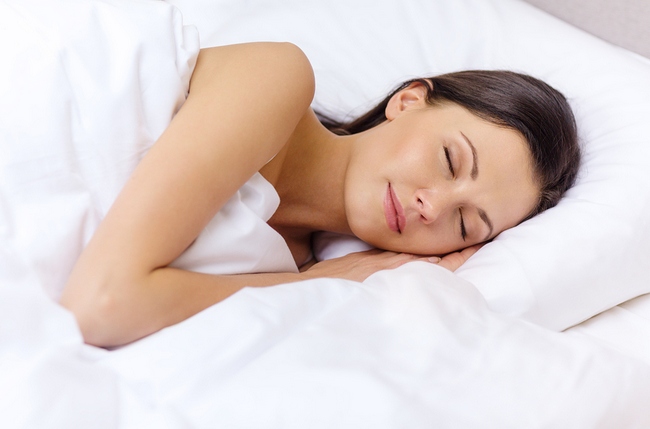- Make It Yourself Lavender Heart-Shaped Bath Bombs!
- 20 Things You Never Knew About “Down There”
- 12 Best Foods For Those Suffering From Arthritis Pain
- 12 Personal Hygiene Mistakes Almost Everyone Makes (Mom Never Told You About #4!)
- 15 Medicinal Plants And Herbs From The Cherokee People
- 12 Mind-Blowing Benefits Of Drinking Coconut Water During Pregnancy
- 12 Outstanding Winter Foods That Won’t Fatten You Up Like A Christmas Turkey
Step Aside White Noise, Pink Noise is Taking Over

Photo credit: bigstock
It’s fairly safe to say that most people aren’t jealous of elephants, but you might be when you find out that they only sleep about 3 or 4 hours each night and they are still perky, happy elephants all day long. Why is this? Although they only sleep about 4 hours, the sleep they get is very deep and stable.
In our modern world, we have water pollution, air pollution, and noise pollution. In efforts to fall asleep faster and block out the noises from the outside world, many people turn to white noise machines, soothing sounds across a wide range of frequencies. However, when it comes to noise, pink just might be the new white.
Studies show that pink noise, which has sounds that are at lower and more consistent frequencies than typical white noise, seems to help improve the way people sleep. Pink noise is also connected with an improved memory, especially for those who are afflicted with Alzheimer’s disease and/or other conditions of the brain.
Although pink noise and white noise contain frequencies that are audible to humans (between 20 hertz to 20,000 hertz) the difference is the way the signal is distributed. White noise has equal power in all frequencies while pink noise power decreases as the frequency increases. This means that the lower frequencies in pink noise are louder and more powerful than the ones at high frequencies. Many people experience pink noise, however, as being even or flat sounding.
Sounds you might expect in the pink noise spectrum would include things such as ticking clocks, rustling leaves on trees, or rain on the pavement. Although some people might find these types of sounds annoying, there is no denying that their slow paced, repetitive sounds encourage improved sleep and brain functions. Pink noise means that every single octave carries an equal amount of power. These sounds are called pink because light that has a similar spectrum of power would appear pink to our eyes.
SEE ALSO: 5 Simple Changes to Reset Your Sleeping Patterns
In a study done at China’s Peking University, groups of people took naps during the day or slept at night, and some were exposed to pink noise, while others slept in quiet, soundless rooms. This study showed that those who slept in rooms with pink noise slept more soundly. The participants themselves stated that they felt that the pink noise had positive effects.
As far as the memory improvement goes, research shows that sounds in the frequencies of the color pink, regulate the rhythms of the brain that respond well to slower oscillation. This part of the brain is responsible for our memories, and when this portion is enhanced, it can help a person recall events.
Continue to Page 2

Photo credit: bigstock
Sound plays a huge role in brain activity (think about how happy hearing your favorite song can make you no matter what else is going on). The steady sounds from pink noise regulate and slow your brainwaves, which is a stamp of deep, restful sleep.
In fact, pink noise is often used in business settings. Pink noise covers up low frequency background noise, such as traffic, and can potentially help increase concentration and productivity among workers.
It’s well-known that at least 30 percent of the American population does not get enough sleep, or does not get quality sleep, which leads to sleep deprivation. When you don’t get enough sleep, or quality sleep, it has a negative impact on the connective tissue within the brain, which often leads to a loss of brain tissue.
Although you might not be able to get by on four hours of sleep, like our elephant friends, but if you are looking for ways to sleep better, pink noise might just be your answer. You can buy electronic devices that give off pink noise or try some of the online apps that are available. (Just don’t use your headphones in bed!) Other things you might want to consider are dimming the light settings on cell phones and laptops two hours before bed, and then shutting them off entirely 30 minutes before you go to sleep. You should also limit caffeinated drinks several hours before bedtime. Read more how to improve your sleep.
Sources:
































